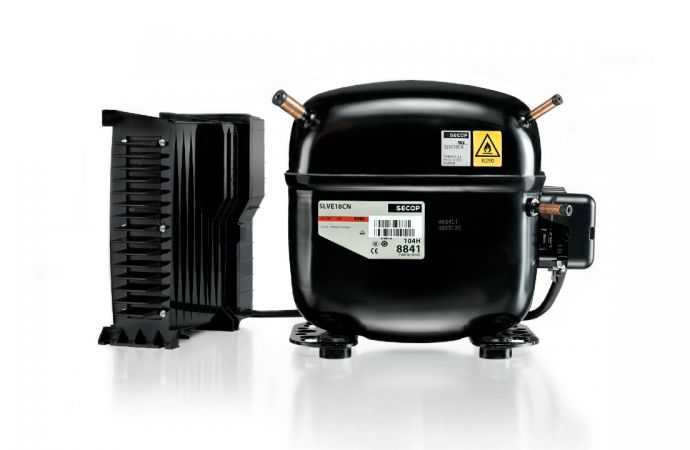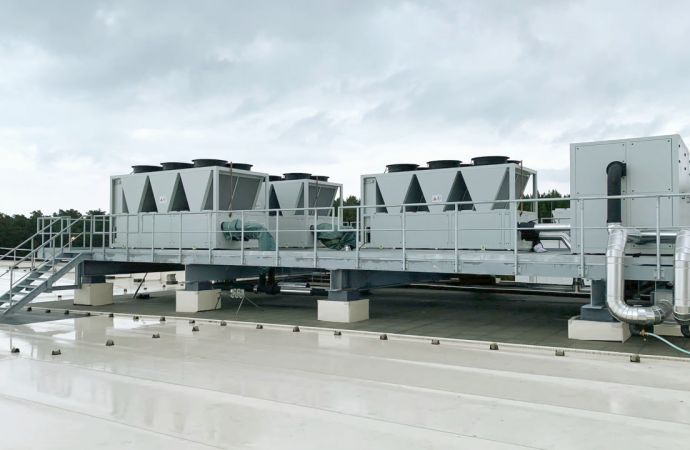New report identifies a 0.4Mt CO2e emissions reduction in 2025 from efficiency gains and NatRef adoption.
_1606905954.jpg)
The new public report can be downloaded from the RefNat4LIFE website.
A new public report by the EU-funded Refrigerants, Naturally! for LIFE (RefNat4LIFE) project has identified considerable GHG emissions savings for small food retailers in Europe that adopt natural refrigerants and energy-efficiency improvements.
The report – “Towards sustainable cooling in the European organic and small food retail sector – Status, technology needs and expectations,” shares what is considered the first-ever approximation of refrigeration, air-conditioning, and heat pump (RACHP)-related emissions within this sector in Europe.
An executive summary as well as the full report can be accessed here.
The study looks at all European food store types up to 1,000m2 (10,764ft2) in sales area in five countries, with special relevance to small organic food stores below 400m2 (4,306ft2) sales area.
Stores with best-practice energy efficiency improvements, and an accelerated conversion of RACHP appliances to low-GWP, natural refrigerants, are expected to achieve additional emission reductions in the range of 0.4Mt (mega metric tons) CO2e in 2025 compared to a baseline (business-as-usual) scenario, according to the report.
Cumulative RACHP-related emissions savings from 2021 to 2025 are projected to amount to 1.1Mt CO2eq. More than half of the total projected RACHP emission mitigation potential for the five project countries in 2025 is attributed to German small food retailers, followed by those in Spain.
The study is derived from two online surveys of end users and RACHP contractors, and complementary personal interviews from October 2019 to April 2020 with small food retailers representing 1,061 stores in Europe.
Collected information was fed into a comprehensive modeling exercise covering business-as-usual and mitigation scenarios for GHG emissions projected to 2025.
The number of small food retail stores in Europe was estimated at an accuracy margin of +/-30%, and the projection relies on data and indicators defined prior to the COVID-19 pandemic. Nonetheless, the resulting data is unique, as it is regarded as the first-ever approximation on RACHP-related emissions from small food retail stores in Europe.
The energy-performance of an appliance is one key selection criterion when purchasing a new RACHP system, according to the report. The application of wider system energy conservation features – including doors on cooling cabinets, heat recovery, or thermal insulation in existing small stores was found to be rather low.
Promoting climate-friendly cooling
Launched in June 2019 and partially financed by the EU, the RefNat4LIFE project will run until December 2021. The aim of the project is to promote the uptake of climate-friendly cooling alternatives among end users of RACHP equipment and service providers throughout Europe.
“However, RefNat4LIFE actions will only be effective if based on solid data about current and future RACHP use in Europe’s small food retail sector,” explained Britta Paetzold, Project Manager at German independent environmental consulting firm HEAT GmbH. The report was written with other lead authors Nina Masson and Jascha Moie – both from HEAT – with inputs from the project partners.
“As such data had largely been missing, a market study was implemented to gather insights into a sector often disregarded in European and national statistics,” says Paetzold. This was essential to get a better understanding of the number of stores in the small food retail sector; the structure of the sector; its economic position and challenges; and the potential for GHG emissions savings in this sector, she added.
The report brings together expertise from eight partners from Belgium, Germany, the Netherlands, Portugal and Spain representing organic food retail, the RACHP contracting and servicing sector, and the natural refrigerants industry perspective (contributed by shecco, publisher of this website and project partner).
The full public report includes the following chapters:1 Introduction, Climate Impact of Small Food Retail & Project Goals
2 The European Small Food Retail Sector
3 The European Organic Food Retail (OFR) Sector
4 RACHP use in the European OFR and small food retail sector
5 Recommendations & Outlook
For more information, visit www.refnat4LIFE.eu or email Info@refnat4life.eu
Related stories



